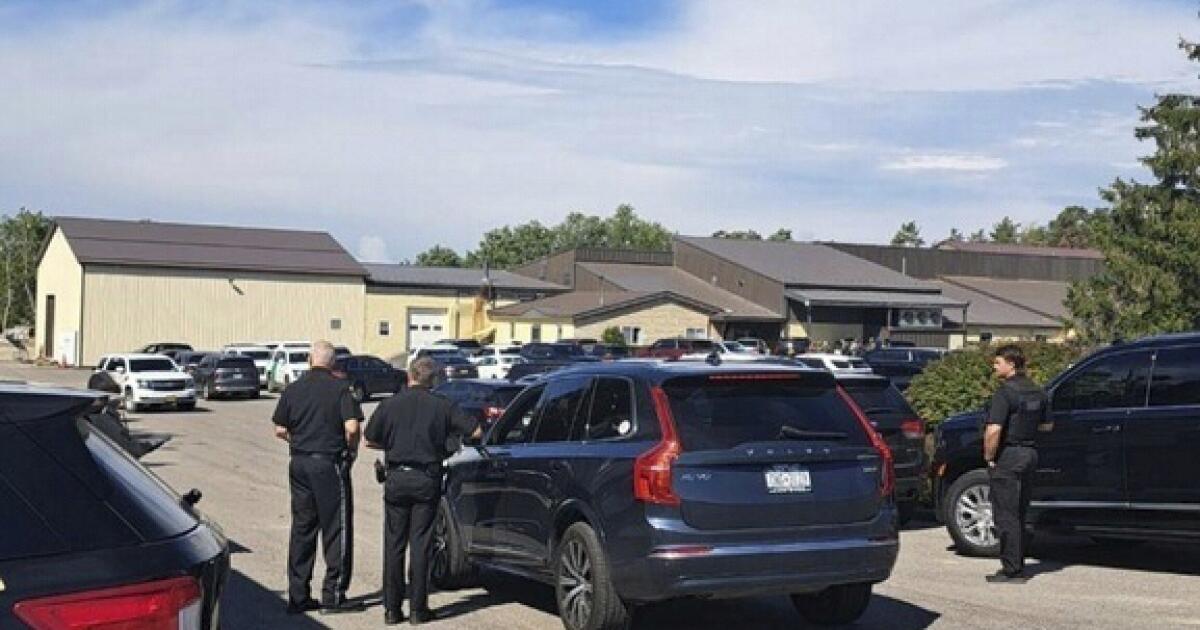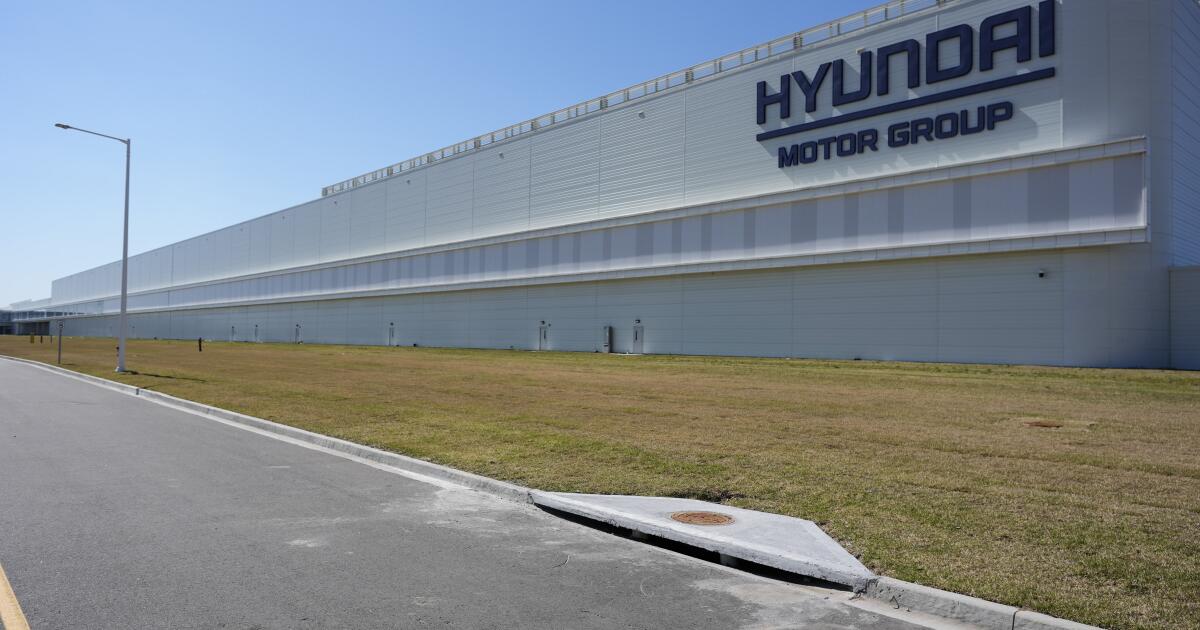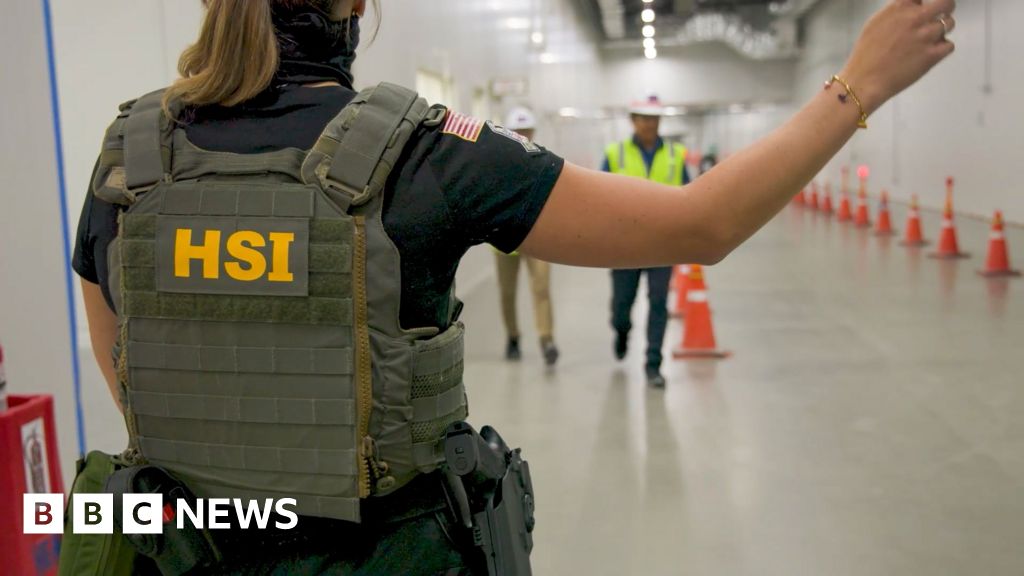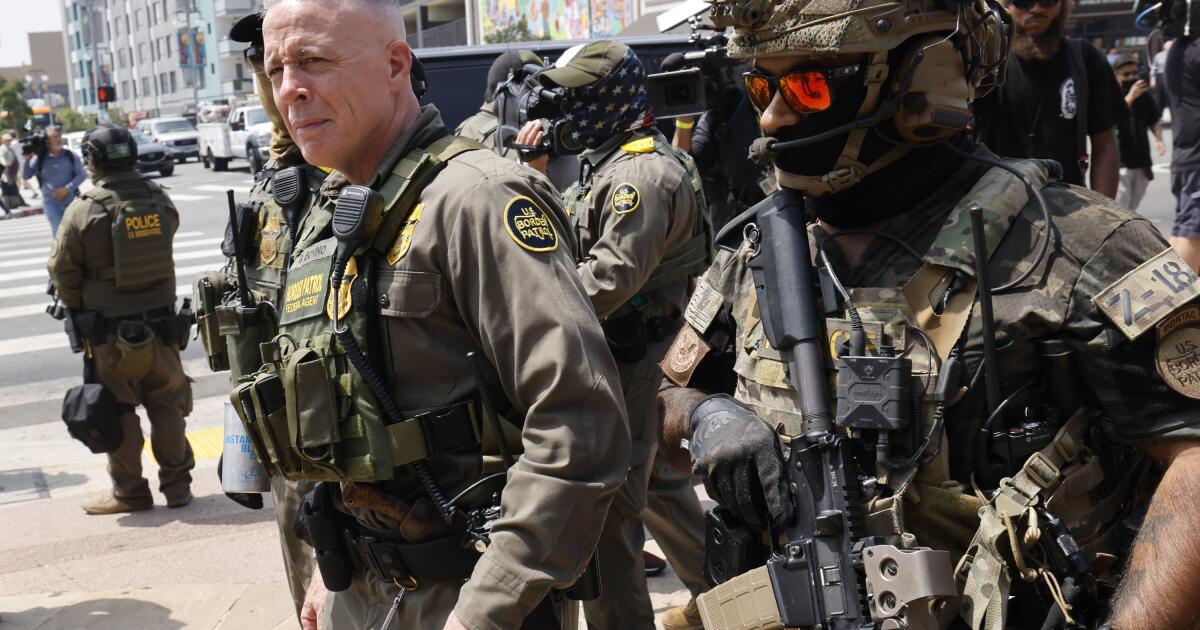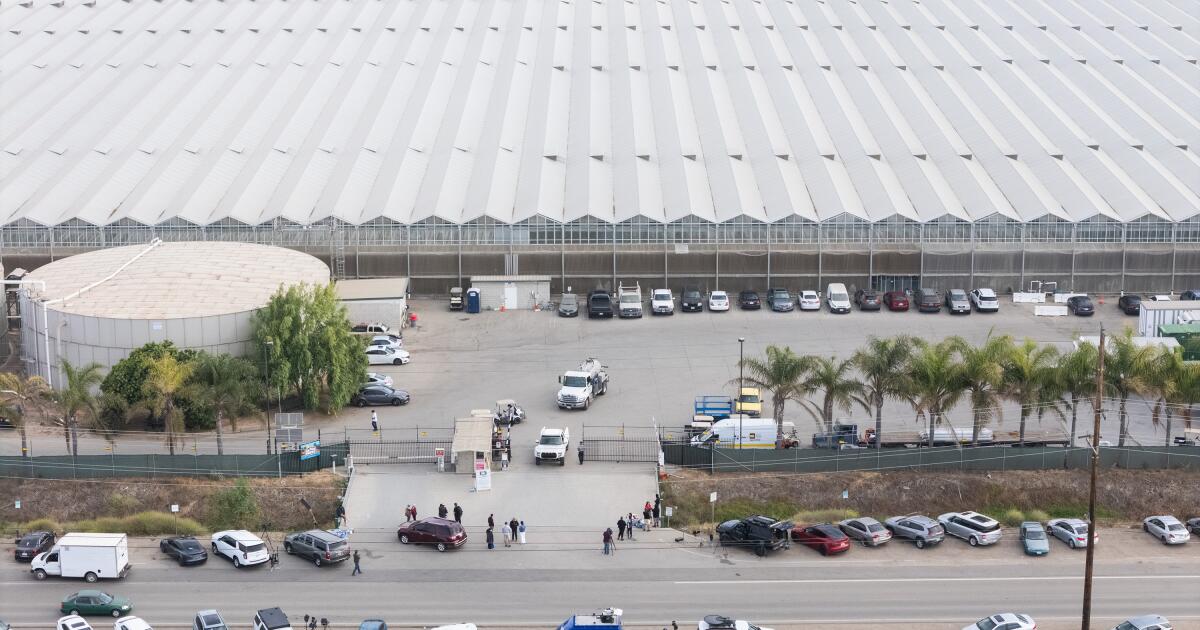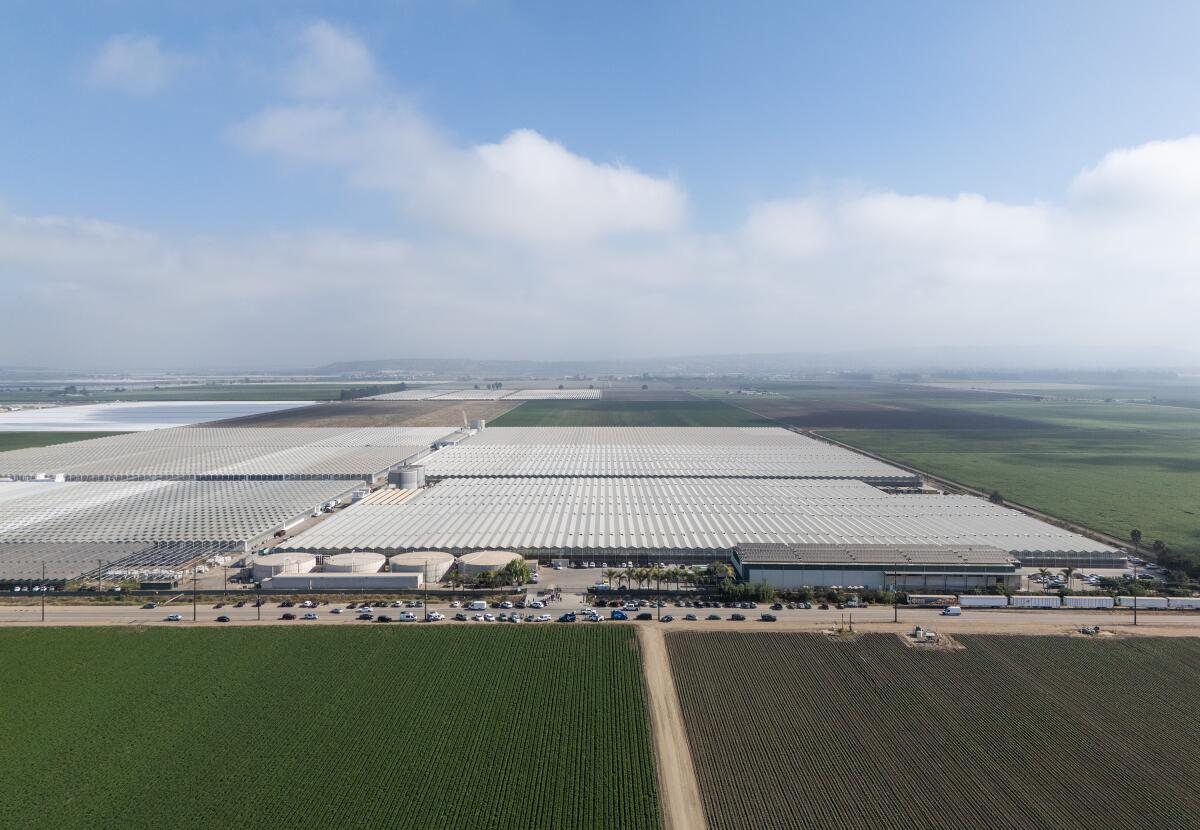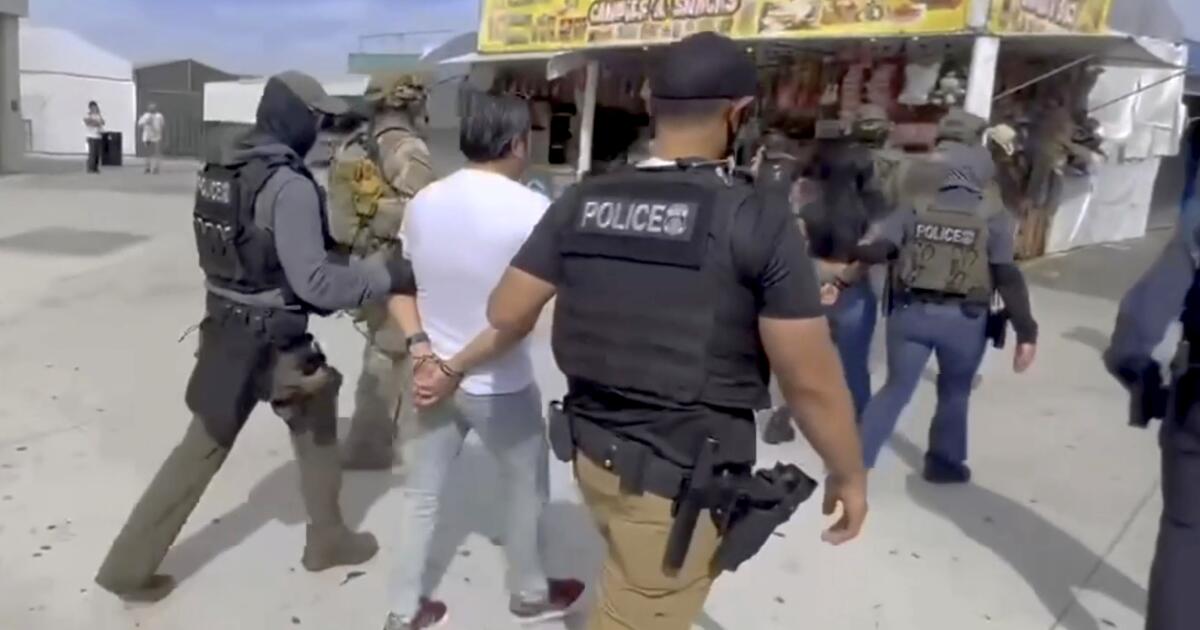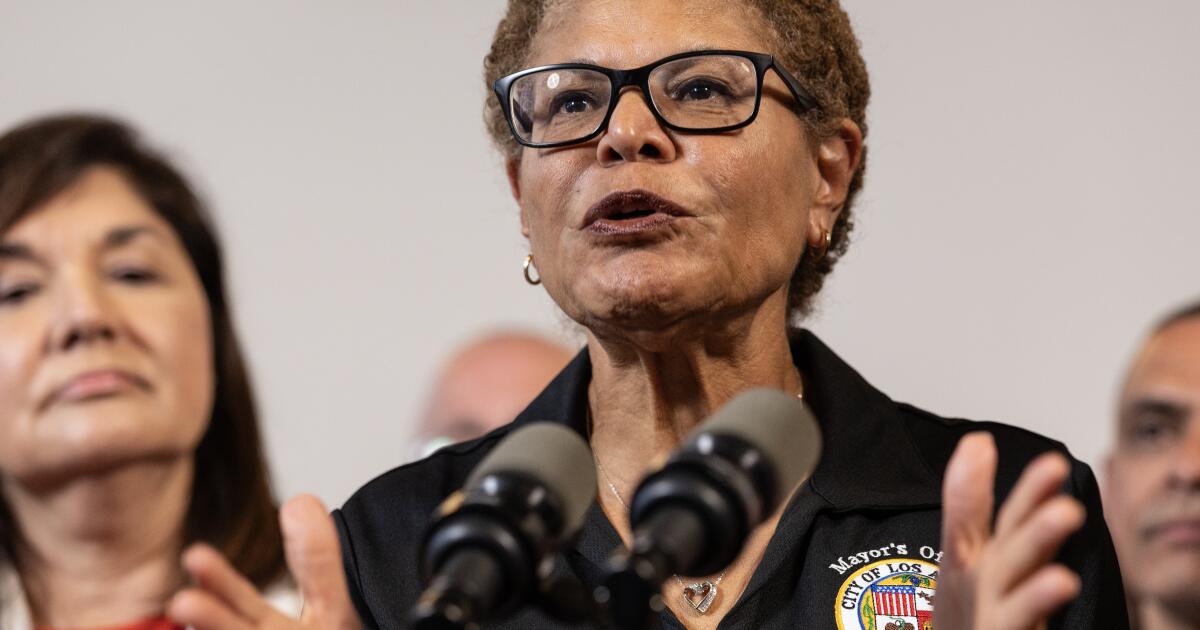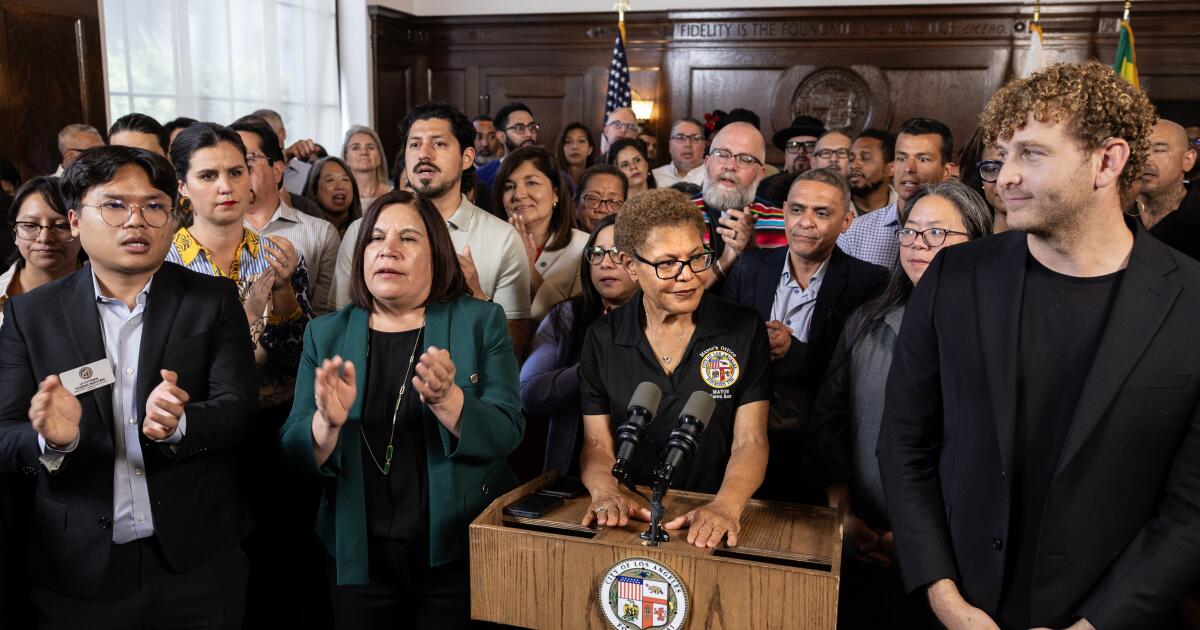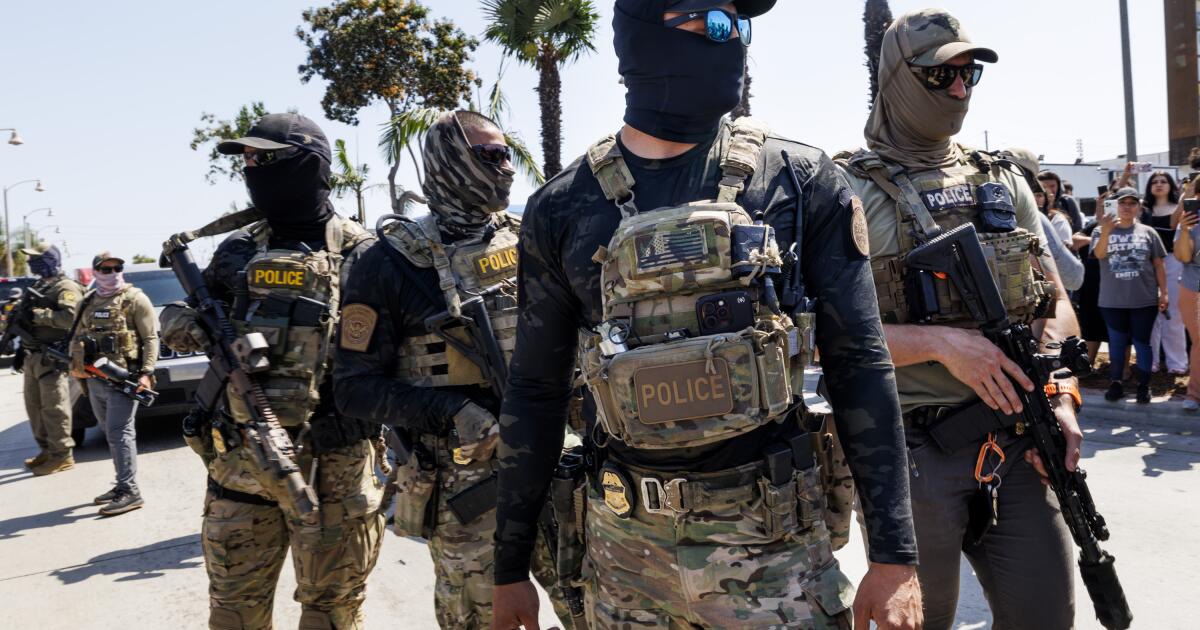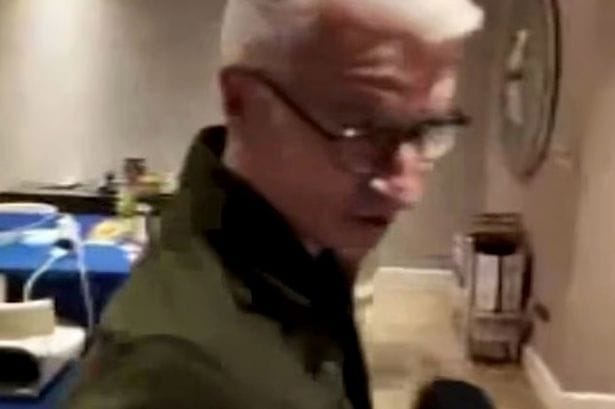They called them the “worst of the worst.” For more than a month and a half, the Trump administration has posted a barrage of mugshots of L.A. undocumented immigrants with long rap sheets.
Officials have spotlighted Cuong Chanh Phan, a 49-year-old Vietnamese man convicted in 1997 of second–degree murder for his role in slaying two teens at a high school graduation party.
They have shared blurry photos on Instagram of a slew of convicted criminals such as Rolando Veneracion-Enriquez, a 55-year-old Filipino man convicted in 1996 of sexual penetration with a foreign object with force and assault with intent to commit a felony. And Eswin Uriel Castro, a Mexican convicted in 2002 of child molestation and in 2021 of assault with a deadly weapon.
But the immigrants that the Department of Homeland Security showcase in X posts and news releases do not represent the majority of immigrants swept up across Los Angeles.
As the number of immigration arrests in the L.A. region quadrupled from 540 in April to 2,185 in June, seven out of 10 immigrants arrested in June had no criminal conviction — a trend that immigrant advocates say belies administration claims that they are targeting “heinous illegal alien criminals” who represent a threat to public safety.
According to a Los Angeles Times analysis of ICE data from the Deportation Data Project, the proportion of immigrants without criminal convictions arrested in seven counties in and around L.A. has skyrocketed from 35% in April, to 46% in May, and to 69% from June 1 to June 26.
Austin Kocher, a geographer and research assistant professor at Syracuse University who specializes in immigration enforcement, said the Trump administration was not being entirely honest about the criminal status of those they were arresting.
Officials, he said, followed a strategy of focusing on the minority of violent convicted criminals so they could justify enforcement policies that are proving to be less popular.
“I think they know that if they were honest with the American public that they’re arresting people who cook our food, wash dishes in the kitchen, take care of people in nursing homes, people who are just living in part of the community … there’s a large segment of the public, including a large segment of Trump’s own supporters, who would be uncomfortable and might even oppose those kinds of immigration practices.”
In Los Angeles, the raids swept up garment worker Jose Ortiz, who worked 18 years at the Ambiance Apparel clothing warehouse in downtown L.A., before being nabbed in a June 6 raid; car wash worker Jesus Cruz, a 52-year-old father who was snatched on June 8 — just before his daughter’s graduation — from Westchester Hand Wash; and Emma De Paz, a recent widow and tamale vendor from Guatemala who was arrested June 19 outside a Hollywood Home Depot.
Such arrests may be influencing the public’s perception of the raids. Multiple polls show support for Trump’s immigration agenda slipping as masked federal agents increasingly swoop up undocumented immigrants from workplaces and streets.
ICE data shows that about 31% of the immigrants arrested across the L.A. region from June 1 to June 26 had criminal convictions, 11% had pending criminal charges and 58% were classified as “other immigration violator,” which ICE defines as “individuals without any known criminal convictions or pending charges in ICE’s system of record at the time of the enforcement action.”
The L.A. region’s surge in arrests of noncriminals has been more dramatic than the U.S. as a whole: Arrests of immigrants with no criminal convictions climbed nationally from 57% in April to 69% in June.
Federal raids here have also been more fiercely contested in Southern California — particularly in L.A. County, where more than 2 million residents are undocumented or living with undocumented family members.
“A core component of their messaging is that this is about public safety, that the people that they are arresting are threats to their communities,” said David Bier, director of immigration studies at the Cato Institute, a Libertarian think tank. “But it’s hard to maintain that this is all about public safety when you’re going out and arresting people who are just going about their lives and working.”
Trump never said he would arrest only criminals.
Almost as soon as he retook office on Jan. 20, Trump signed a stack of executive orders aimed at drastically curbing immigration. The administration then moved to expand arrests from immigrants who posed a security threat to anyone who entered the country illegally.
Yet while officials kept insisting they were focused on violent criminals, White House Press Secretary Karoline Leavitt issued a warning: “That doesn’t mean that the other illegal criminals who entered our nation’s borders are off the table.”
As White House chief advisor on border policy Tom Homan put it: “If you’re in the country illegally, you got a problem.”
Still, things did not really pick up until May, when White House Deputy Chief of Staff Stephen Miller ordered ICE’s top field officials to shift to more aggressive tactics: arresting undocumented immigrants, whether or not they had a criminal record.
Miller set a new goal: arresting 3,000 undocumented people a day, a quota that immigration experts say is impossible to reach by focusing only on criminals.
“There aren’t enough criminal immigrants in the United States to fill their arrest quotas and to get millions and millions of deportations, which is what the president has explicitly promised,” Bier said. “Immigration and Customs Enforcement says there’s half a million removable noncitizens who have criminal convictions in the United States. Most of those are nonviolent: traffic, immigration offenses. It’s not millions and millions.”
By the time Trump celebrated six months in office, DHS boasted that the Trump administration had already arrested more than 300,000 undocumented immigrants.
“70% of ICE arrests,” the agency said in a news release, “are individuals with criminal convictions or charges.”
But that claim no longer appeared to be true. While 78% of undocumented immigrants arrested across the U.S. in April had a criminal conviction or faced a pending charge, that number had plummeted to 57% in June.
In L.A., the difference between what Trump officials said and the reality on the ground was more stark: Only 43% of those arrested across the L.A. region had criminal convictions or faced a pending charge.
Still, ICE kept insisting it was “putting the worst first.”
As stories circulate across communities about the arrests of law-abiding immigrants, there are signs that support for Trump’s deportation agenda is falling.
A CBS/YouGov poll published July 20 shows about 56% of those surveyed approved of Trump’s handling of immigration in March, but that dropped to 50% in June and 46% in July. About 52% of poll respondents said the Trump administration is trying to deport more people than expected. When asked who the Trump administration is prioritizing for deporting, only 44% said “dangerous criminals.”
California Gov. Gavin Newsom and L.A. Mayor Karen Bass have repeatedly accused Trump of conducting a national experiment in Los Angeles.
“The federal government is using California as a playground to test their indiscriminate actions that fulfill unsafe arrest quotas and mass detention goals,” Diana Crofts-Pelayo, a spokesperson for Newsom told The Times. “They are going after every single immigrant, regardless of whether they have a criminal background and without care that they are American citizens, legal status holders and foreign-born, and even targeting native-born U.S. citizens.”
When pressed on why ICE is arresting immigrants who have not been convicted or are not facing pending criminal charges, Trump administration officials tend to argue that many of those people have violated immigration law.
“ICE agents are going to arrest people for being in the country illegally,” Homan told CBS News earlier this month. “We still focus on public safety threats and national security threats, but if we find an illegal alien in the process of doing that, they’re going to be arrested too.”
Immigration experts say that undermines their message that they are ridding communities of people who threaten public safety.
“It’s a big backtracking from ‘These people are out killing people, raping people, harming them in demonstrable ways,’ to ‘This person broke immigration law in this way or that way,’” Bier said.
The Trump administration is also trying to find new ways to target criminals in California.
It has threatened to withhold federal funds to California due to its “sanctuary state” law, which limits county jails from coordinating with ICE except in cases involving immigrants convicted of a serious crime or felonies such as murder, rape, robbery or arson.
Last week, the U.S. Justice Department requested California counties, including L.A., provide data on all jail inmates who are not U.S. citizens in an effort to help federal immigration agents prioritize those who have committed crimes. “Although every illegal alien by definition violates federal law,” the U.S. Justice Department said in a news release, “those who go on to commit crimes after doing so show that they pose a heightened risk to our Nation’s safety and security.”
As Americans are bombarded with dueling narratives of good vs. bad immigrants, Kocher believes the question we have to grapple with is not “What does the data say?”
Instead, we should ask: “How do we meaningfully distinguish between immigrants with serious criminal convictions and immigrants who are peacefully living their lives?”
“I don’t think it’s reasonable, or helpful, to represent everyone as criminals — or everyone as saints,” Kocher said. “Probably the fundamental question, which is also a question that plagues our criminal justice system, is whether our legal system is capable of distinguishing between people who are genuine public safety threats and people who are simply caught up in the bureaucracy.”
The data, Kocher said, show that ICE is currently unable or unwilling to make that distinction.
“If we don’t like the way that the system is working, we might want to rethink whether we want a system where people who are simply living in the country following laws, working in their economy, should actually have a pathway to stay,” Kocher said. “And the only way to do that is actually to change the laws.”
In the rush to blast out mugshots of some of the most criminal L.A. immigrants, the Trump administration left out a key part of the story.
According to the California Department of Corrections and Rehabilitation, its staff notified ICE on May 5 of Veneracion’s pending release after he had served nearly 30 years in prison for the crimes of assault with intent to commit rape and sexual penetration with a foreign object with force.
But ICE failed to pick up Veneracion and canceled its hold on him May 19, a day before he was released on parole.
A few weeks later, as ICE amped up its raids, federal agents arrested Veneracion on June 7 at the ICE office in L.A. The very next day, DHS shared his mugshot in a news release titled “President Trump is Stepping Up Where Democrats Won’t.”
The same document celebrated the capture of Phan, who served nearly 25 years in prison after he was convicted of second-degree murder.
CDCR said the Board of Parole Hearings coordinated with ICE after Phan was granted parole in 2022. Phan was released that year to ICE custody.
But those details did not stop Trump officials from taking credit for his arrest and blaming California leaders for letting Phan loose.
“It is sickening that Governor Newsom and Mayor Bass continue to protect violent criminal illegal aliens at the expense of the safety of American citizens and communities,” DHS Assistant Secretary Tricia McLaughlin said in a statement.
